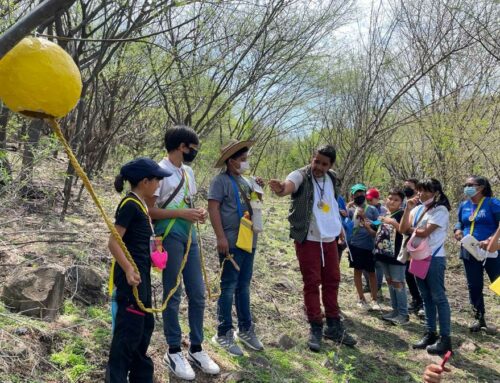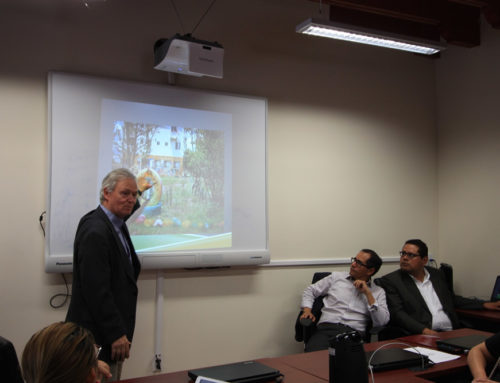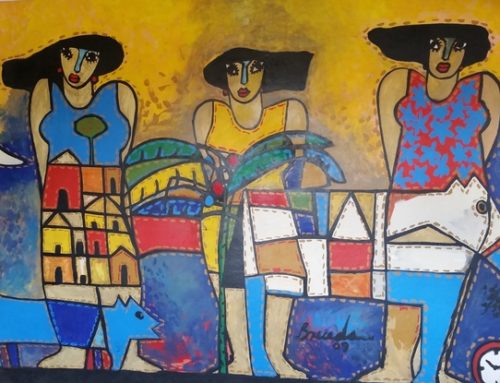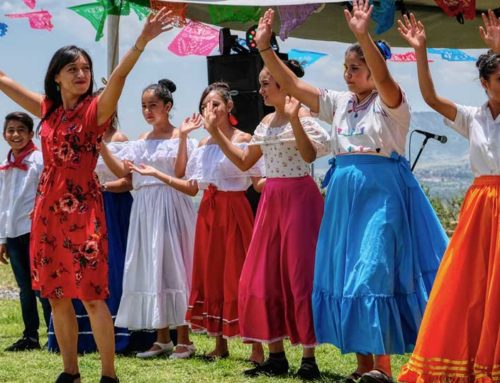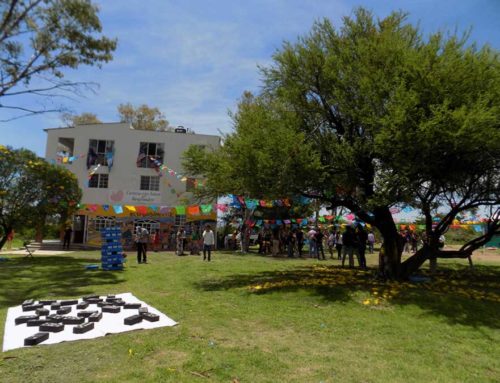UA’s Richard Ruiz Residency Scholar Program plans to impact central Mexico through “scholARTistry,” the merging of the arts and social sciences with scholar recipient Melisa (Misha) Cahnmann-Taylor at the helm.
Lilly Berkley, UANews Student Associate, University Communications. April 27, 2017
If you are reading this, you are lucky.
Researchers with the United Nations Educational, Scientific and Cultural Organization found that nearly 17 percent of the world’s adult population, and 122 million youth around the world, are illiterate.
To help decrease those figures, the University of Arizona’s College of Education is, for the second year, using the Richard Ruiz Residency Scholar Program to make literacy more accessible bi-nationally.
Melisa (Misha) Cahnmann-Taylor was selected to serve as this year’s scholar. Specifically, she will use art, poetry and theater to engage community members in Guanajuato, Mexico in literacy education this summer. She is being engaged through Resplandor International, a nonprofit humanitarian organization established out of the UA College of Education and located in Guanajuato.
“We believe deeply in formal learning as well as inspirational learning,” said Todd Fletcher, an associate professor in the UA Department of Disability and Psychoeducational Studies and Resplandor’s founding director.
“We’re excited Cahnmann-Taylor has a specialty in this area, because it’s not just about book learning but humans striving to achieve knowledge and excellence through the arts,” Fletcher said, adding that children and adults will be engaged through workshops and other projects.
“She will have her finger on the pulse of the community,” Fletcher said, adding that she will attend town hall meetings to determine what community members need to then inform her work through after school programs, workshops and conferences. “Education is the goal. We recognize that through education there is a direct effect on the social and economic development of an area. Education gives you the tools for a better life.”
And through efforts like fundraisers and community outreach as well as the sponsorship of Learning A-Z, an international organization that provides the tools for learning, the UA program will connect students and faculty with members of the Guanajuato community.
“This was an area in Mexico where the UA saw a need, and that’s why we got behind it,” said Bob Holl, president and co-founder of Learning A-Z. “We like working with the UA and continuing our partnership, and we’re thrilled we have the resources to support and share the rewards of success.”
The partnership with Learning A-Z will allow this UA initiative to provide the literacy resources that the Guanajuato youth and young adult community need.
Cahnmann-Taylor said the residency appealed to her because she is an advocate for unifying the arts and social sciences, known as “scholARTistry.”
“As someone who has been active in defining and illustrating scholARTistry, this residency appealed to me as it also articulated these connections,” said Cahnmann-Taylor, who will teach at Resplandor and also attend community functions to get a better sense of what the community needs.
Cahnmann-Taylor, who graduated from Tufts University with a degree in Spanish, has promoted literacy through poetry and theater. She went on to earn a master’s degree in education research at the University of California, Santa Cruz, a MFA in poetry from New England College and a doctorate in educational lingusitics from the University of Pennsylvania.
And in reflecting on her time as a bilingual education teacher in South Central, Los Angeles, Cahnmann-Taylor said it was then that she started merging educational fieldwork with poetry and performing. The work she has done in the U.S. established a foundation for her summer residency in Mexico.
“I have always felt that the skills I learned as a new teacher of young children in elementary school has served me well with students of all ages,” she said. “I think the arts require users to adopt a child’s sense of play and openness, so I adapt these practices according to the developmental needs of the student, but I also try to inspire older students to find the younger child’s freedom within.”
Last year’s recipient, Alba Nora Martinez, found the work in Guanajuato to be so rewarding she plans on returning this summer to continue work.
“I had such a wonderful experience working the children and community, and giving back to my country that I wanted to return this summer and continue outreach,” she said.
The program sees the importance of education and how efforts like this not only impact literacy but relationships.
Fletcher said: “We need to improve relationships with Mexico and communicate a sense of inclusiveness. We also need to promote intercultural understanding so we can work together to improve both of our societies.”


